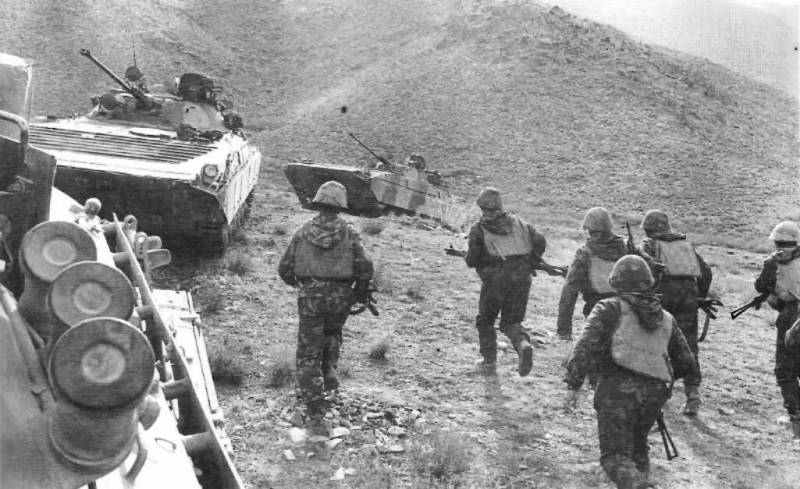Fighting in Kunar province: about the first large-scale operation of Soviet-Afghan troops

After the entry of the Soviet military contingent into Afghanistan on December 25, 1979, by February 80, 40 airfields, more than 9 provincial centers and almost all major cities were under the control of the 20th Army of the USSR Armed Forces and the DRA troops. At that time, most Soviet military personnel were confident of returning home soon.
However, everything was changed by the event that occurred on February 21-23 in Kabul, when more than 400 thousand Afghans came out to an anti-Soviet rally. The protests were suppressed. However, even then it became clear that the influence of the opposition in the country was growing rapidly.
As a result, the Karmal government persuaded Moscow to give the 40th Army the order to begin a joint operation with the armed forces of the DRA to eliminate armed rebel groups, the largest of which was located in Kunar province.
The latter was almost completely controlled by the Mujahideen, except for the administrative center of Asadabad. The militant forces numbered about 3000 thousand people. Arms were supplied to the dushmans by Islamists from Pakistan, which borders the Kunar province.
The first major operation was carried out against this group, since the authorities of the Democratic Republic of Afghanistan believed that it was from here that the Mujahideen’s attack on Kabul would begin.
In turn, the Mujahideen spent more than seven months preparing this area for combat operations, equipping observation posts at key heights, firing positions, protective ditches and embankments, as well as strongholds.
According to the plan of the Soviet and Afghan military leadership, during the operation, with the forces of two battalions from the front and airborne units landing in the rear, it was planned to launch a simultaneous attack on the forces of the militants in the Shegal gorge. At the same time, the 69th Mountain Infantry Regiment was supposed to pin down the Mujahideen detachments in the Pechdara gorge and then advance along the Kunar River.
Responsible for fire defeat of the enemy aviation. In addition, continuous air support for the attackers with the help of combat helicopters was planned.
The Kunar operation began on February 29, 1980. As of March 3, enemy losses amounted to about 1,5 thousand people. 6 headquarters, 2 transshipment bases, 17 strong points, 12 guns and mortars, 5 air defense positions were destroyed, and dozens of military equipment and other weapons were captured.
Unfortunately, our troops also had to pay a high price: 52 killed, 43 wounded, one missing. In addition, 9 helicopters were damaged.
The first major military operation in Afghanistan clearly showed the poor preparation of the Soviet contingent for battles in the mountains. Meanwhile, only in the spring of 1984 did the preparation of reinforcements on the territory of the USSR begin to take three months instead of two, and from May 1985 - five.
Information